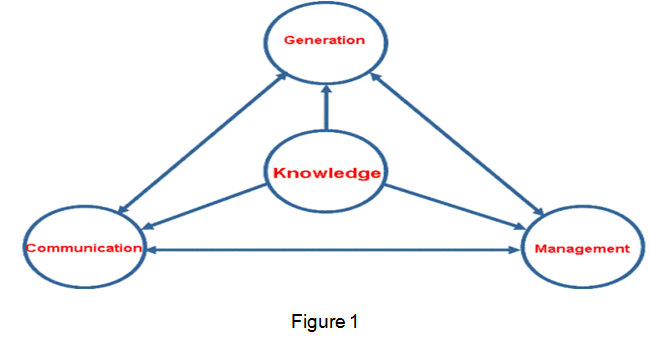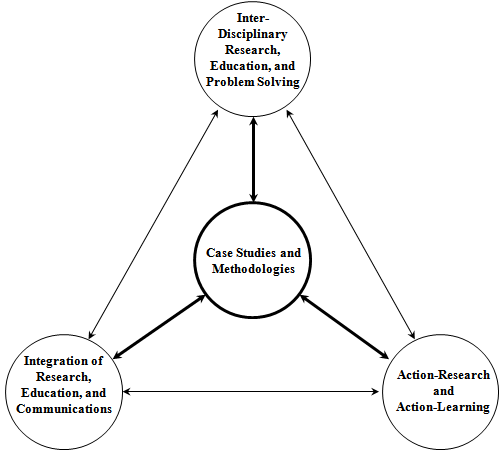Generated knowledge is usually communicated and used in practice to solve real life problems. Effective new approaches and methods are continuously emerging. Implicit or explicit management is usually required for knowledge generation/creation, communication, and application. Knowledge management requires as well knowledge generation and/or communication, i.e. meta-knowledge regarding knowledge management, which has explicitly been addressed on the organizational level in academy and Industry. These three knowledge’s dimensions are highly related among each other.
Information and communications Technologies are increasingly supporting the effectiveness and the efficiency on knowledge generation, communication and management, as well as the relationships among them, and the new effective approaches and methods that are emerging. Consequently, a main purpose of KGCM 2025 is to bring together researchers, professionals, academics, consultants and practitioners related 1) to any of these three areas, 2) to any of the contemporary approaches/methods, and 3) to the conception, design and/or implementation of systems, tools and technologies oriented to support knowledge generation, communications and/or management.
Since one of the main purposes of the International Institute of Informatics and Systemics (IIIS) is fostering knowledge integration via different means as, for example, 1) interdisciplinary research, education, and/or communication, 2) integrating academic activities and 3) promoting events on approaches/methods oriented to this kind of integration as, for example, “Case Studies and Methodologies, Action-Research, Action-Learning, Action-Design/implementation, etc.
Consequently, submissions with regards to relationships between and among the mentioned three areas (Figure 1) and the approaches/methods being used (Figure 2), are specifically encouraged. The objective of organizing the collocated events (the special tracks mentioned below along with the KGCM 2025 general topics) is to foster the possibility of meta-integration by means of providing a platform for potential interactions among scholars/professional working with different integrative approaches/methods.


Figure 2
The phenomena of Knowledge Generation, Communications and/or Management have been addressed in the academic, private and public sectors; in universities and in business; in disciplinary research and in multidisciplinary projects. Support systems are being designed and implemented in and for the three sectors. Consequently, the areas and topics that will be covered in KGCM 2025 will be about KGCM concepts, theories, models and methodologies as well as technologies, supporting systems, tools and techniques. Submissions of papers/abstracts regarding scientific research, engineering designs, technological innovations, case studies, and products development are accepted.
Links to the special tracks announced above are given below
Case Studies and Methodologies
Interdisciplinary Research, Education, and Communication
Integrating Research, Education, and Problem Solving
Action Research and Action Learning
Main Topics are the followings:
-
Knowledge Communication
-
Knowledge Generation
-
Knowledge Management
-
Knowledge Engineering
-
Knowledge Representation
-
Relationships between Knowledge Communication and Knowledge Generation
-
Relationships between Knowledge Communications and Knowledge Management
-
Relationships between Knowledge Generation and Knowledge Management
-
Means and methods for Knowledge Generation and Communication
-
Knowledge Communication and Conferences
-
Knowledge verification and validation
-
Peer Reviewing
-
Scientific and Technical Publishing
-
Electronic Publishing
-
Electronic Libraries
-
Strategies for the Communication of Scientific or Engineering Knowledge
Organizational, Reviewing, and Selection of Best Papers Policies

